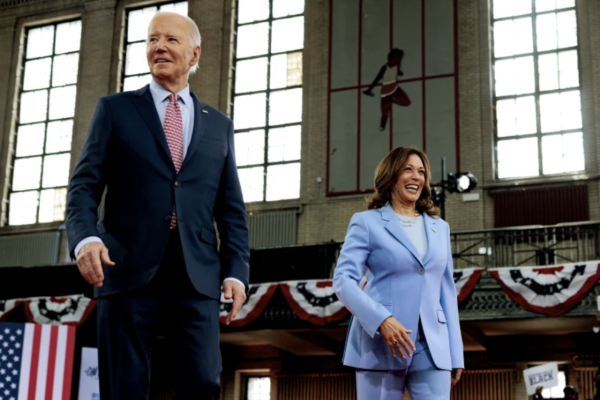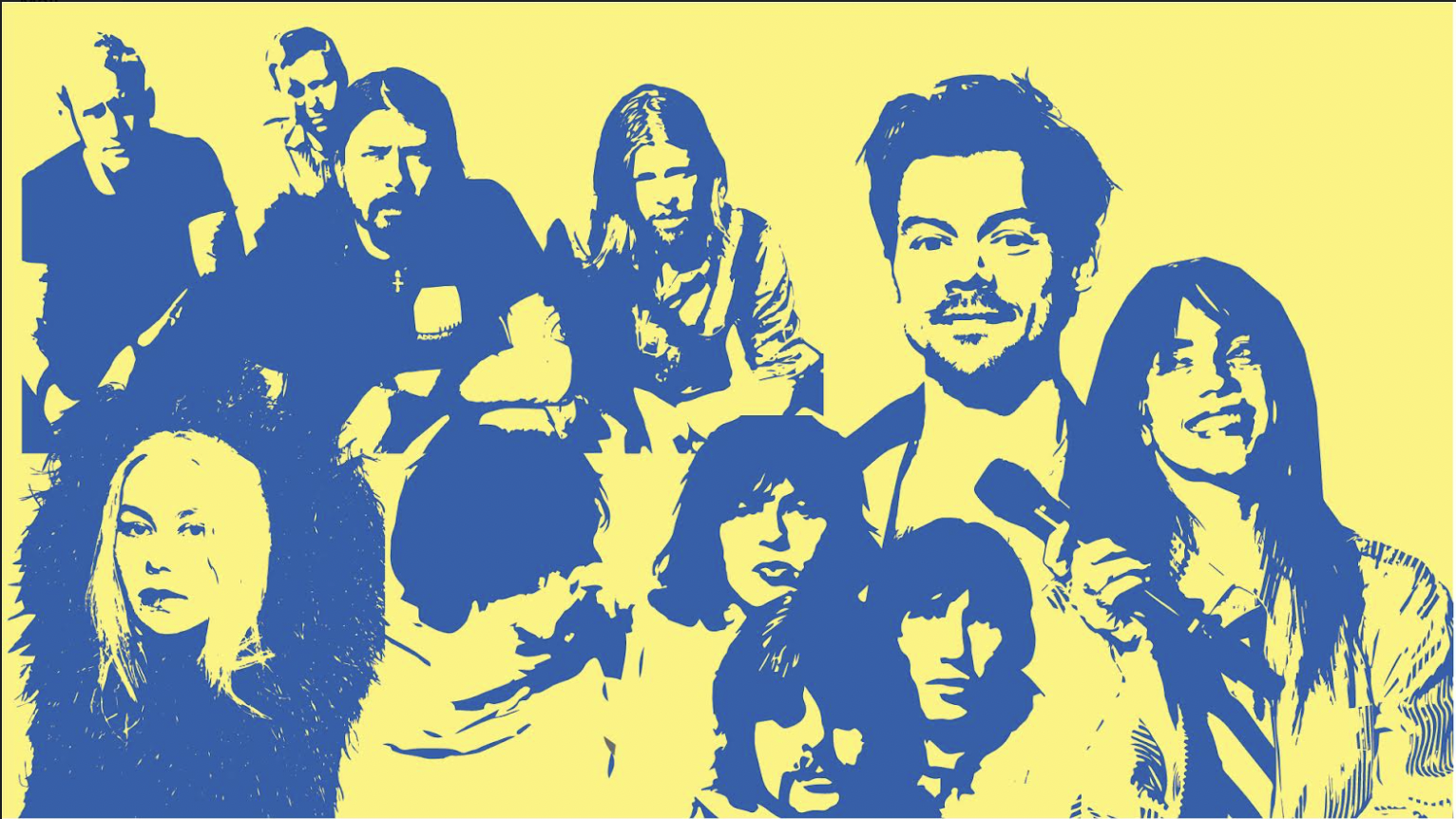Declan McKenna carries intellectual depth and expressive sense of self into sophomore album ‘Zeros’
Declan McKenna on his universally acclaimed sophomore album ‘Zeros,’ the influence of religion, and gender identity.
December 7, 2020
Listen to the full interview here.
Industrialism, climate change, data mining, dystopia, and conspiracy theories are all thought-provoking and often heavy themes at the forefront of people’s minds in 2020 amid political and social unrest and a global pandemic.
But for 21-year-old English singer, songwriter, and musician Declan McKenna, ruminating on such topics is nothing new.
At 15, the singer’s debut single “Brazil” was beyond its years with a political critique and of the corruption within FIFA, the governing body of professional soccer.
This maturity continued into the contents of his first studio album What Do You Think About the Car? where McKenna also showed himself straying away from gender norms complete with glittery eye makeup and rainbow sequined jackets on stage.
McKenna has carried the intellectual depth and expressive sense of self into his sophomore album Zeros, which has taken on greater life when contextualized within the current state of the world.
McKenna is sitting on his bed in his North West London apartment, wearing a black t-shirt with the cuffs rolled during the Zoom interview. His mullet, which was once pristine in music videos for various tracks on the album is now partly grown out and a bit awry.
There is a stack of books on the windowsill behind him, and the wooden headboard and striped bedspread are a stark contrast to the glam rock outfits, glittery makeup, and fantasy animated clips that can be seen on his Instagram page.
Nonetheless, Mckenna’s silly confident demeanor is the same, and his words carry the wisdom and eloquence found throughout the 10-track album. Again, some of which themes are heavy with motifs of the end times, and pointed messages and critiques of the state of the world while being blended with what Pitchfork described as “a chilly Bono-in-Berlin vibe.”
The album was released in early September, but was completed in August 2019… Long before the pandemic, presidential election, and overall sense of unrest that 2020 has brought. The already strong sense of urgency throughout the album has become much stronger, with McKenna commenting that “the immersiveness of (all of that) this year just feels more intense.”
The constant thinking about, performing of, and interviews on an album originally conceptualized with each individual track about a different way in which the world could end isn’t something that McKenna necessarily feels the desire to get a break from. He says that the themes aren’t constantly in his head just because of the album, but because they are part of “everyone’s lives right now.”
“Even though I was worrying about a lot of those things that we’re worrying about collectively now, it really feels like all of the songs have shifted in ways,” says McKenna.
A track that comes to mind specifically is “Daniel You’re Still a Child,” which according to McKenna via the Apple album notes, tells the story of people who are misunderstood and consequently pushed further and further into “dark corners” of conspiracy, misinformation, and extremism. He goes on to list a few examples including flat-earthers, anti-vaxxers, and anti-maskers.
Although from England, McKenna says that “with Trump’s presidency leading up to now” beliefs, conspiracies, etc. which may have once seemed “fairly arbitrary, fairly harmless in the mainstream” have crept their way forwards. Their believers/supporters once in the shadows, now more vocal and unabashed than ever before.
“It’s become a lot more threatening and those dark corners feel a little darker,” explains McKenna, adding that it has become more and more difficult to differentiate between what is real and what is fake thanks to the “disparity in people’s truths.”
Foreboding messages continue far beyond “Daniel You’re Still A Child,” from collective dread of the future and personal torment in “Rapture” to the inevitability of the end and being pulled towards destruction in “Sagittarius A*.”
Despite the expanse of darkness, McKenna still has hope for a brighter future. He says there is no choice.
“It’s hard to really believe in anything if you’re not hopeful in some way,” says McKenna. “Where there are things that seem to be getting darker, there are movements against.”
It is the desire for change that can be seen in younger generations that McKenna believes has the capability to shift the world.
With Zeroes gaining universal acclaim for the production, songwriting, and true influence of 70’s glam rock icons, along with McKenna’s down-to-earth and relatable air, there is no doubt that the album has the potential to help inspire and drive the shift.

















